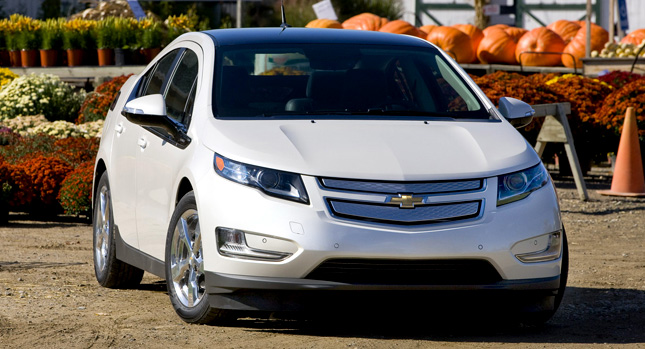Federal safety regulators are looking into the safety of lithium-ion batteries after a Chevrolet Volt went up in flames at a parking lot at the National Highway Traffic Administration testing center in Wisconsin.
An agency official said that the incident took place three weeks after the Chevrolet Volt went through a side-impact crash test on May 12.
 The Volt incident has forced authorities to ask automakers that sell cars equipped with lithium-ion batteries in the U.S., including GM, Nissan and Ford, about the potential fire risks, according to agency officials familiar with the matter.
The Volt incident has forced authorities to ask automakers that sell cars equipped with lithium-ion batteries in the U.S., including GM, Nissan and Ford, about the potential fire risks, according to agency officials familiar with the matter.
Lithium-ion batteries, such as the ones powering the Chevy Volt and Nissan Leaf, are considered more efficient than nickel-metal units used in other vehicles like Toyota’s Prius hybrid.
Even Toyota is making the move to lithium-ion technology for its Prius plug-in hybrid model and RAV-4 EV that will soon launch in the U.S.
GM and NHTSA tried but failed to replicate the May event by crashing a Volt in June. GM spokesperson Greg Martin told Blooomberg in a phone interview that the company has safety procedures for handling the Volt and its battery after an accident, adding, “had those been followed, there wouldn’t have been a fire.”
Today, Jim Federico, General Motors chief engineer for electric vehicles, made the following statement:
“First and foremost, I want to make this very clear: the Volt is a safe car. We are working cooperatively with NHTSA as it completes its investigation. However, NHTSA has stated that based on available data, there’s no greater risk of fire with a Volt than a traditional gasoline-powered car.
Safety protocols for electric vehicles are clearly an industry concern. At GM, we have safety protocols to depower the battery of an electric vehicle after a significant crash.
We are working with other vehicle manufacturers, first responders, tow truck operators, and salvage associations with the goal of implementing industry-wide protocols.”
Story References: GM and Bloomberg
PHOTO GALLERY






















